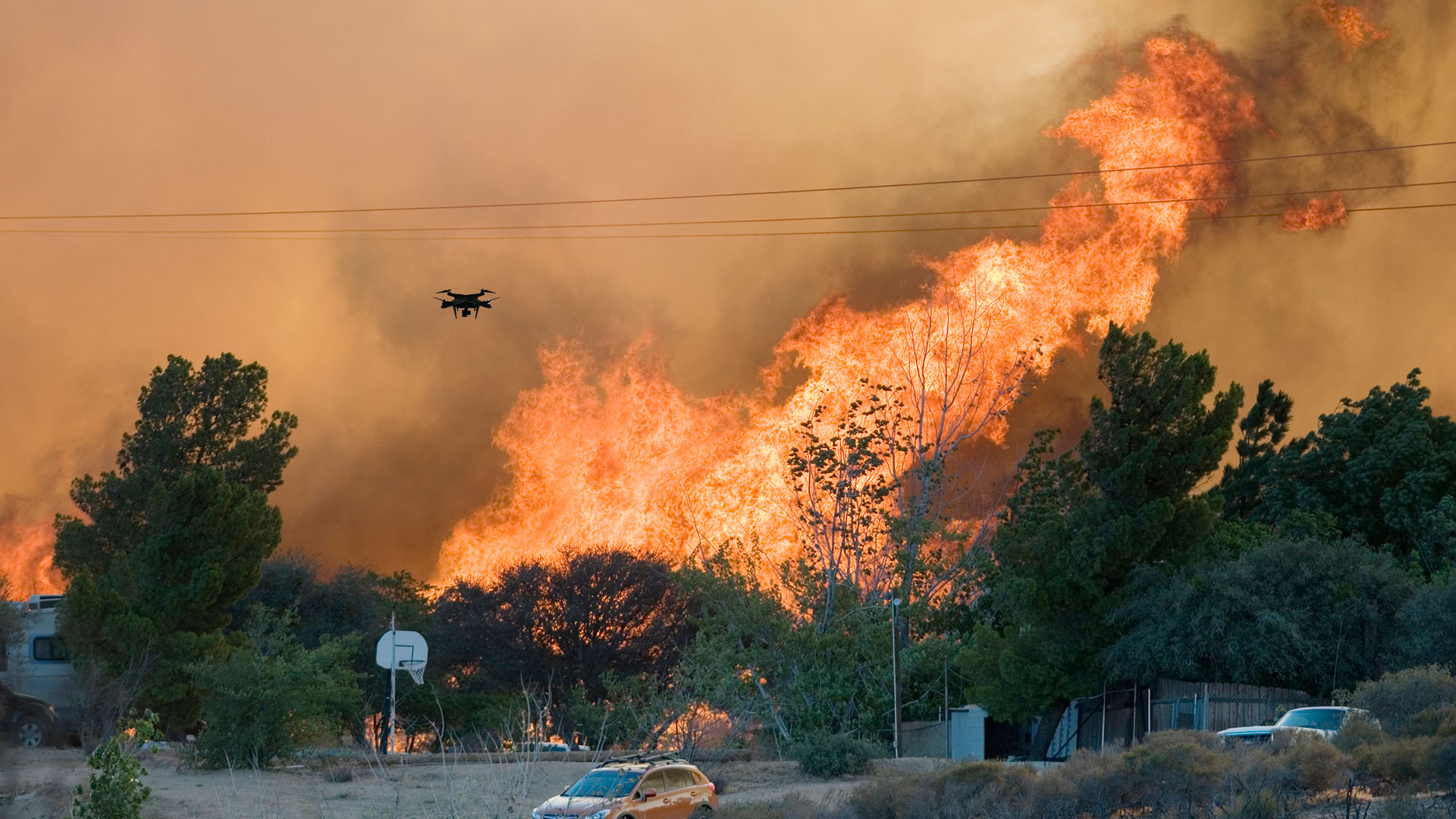

In a move sure to thrill law enforcement officers with an interest in futuristic skeet shooting, the state of Utah is expected to shortly enact a law that would allow authorities to shoot down drones that fly too close to firefighting operations.
The Utah legislature approved the legislation during a special session on Wednesday, and Governor Gary Herbert is expected to sign the bill into law in the next few days.
The move comes in the wake of several recent incidents where drones interfered with firefighters combating a wildfire in the southern part of the state. In that case, firefighting aircraft were forced to the ground after five drone flights occurred in their airspace. As a result, Gov. Herbert said, the costs of fighting the small fire have ballooned well beyond the few million dollars it should have cost to battle the blaze.
“Now we’re way past, north of $10 million because we had to ground aircraft all because of a drone,” he said.
Police officer and firefighters will not be pulling out their pump-action Remingtons the moment they spot a quadcopter on the horizon, however. Instead, officials are expected to first attempt to jam the drone and bring it down through non-violent means already possessed by the National Guard and highway patrol, according to Utah state senator and bill co-sponsor Evan Vickers. That’s not for lack of a desire to blow the drones out of the sky, though.
“The redneck in me is just to shoot the damn thing,” Vickers told lawmakers, according to the AP.
It is unclear what less-lethal means Utah authorities have on hand to disable drones, but past methods used by other organizations have ranged from large cannons firing nets to trained eagles. The Drive has reached out to the Utah Highway Patrol for more information on the subject.
Utah is believed to be the first state to give law enforcement the explicit right to disable or destroy a drone if it interferes with wildfire-fighting operations. The state has also enhanced its already-tough penalties for anyone caught flying a UAV in a manner that prevents aircraft from fighting a fire, including fines of up to $15,000 and as much as 10 years in jail if the drone collides with a firefighting aircraft.